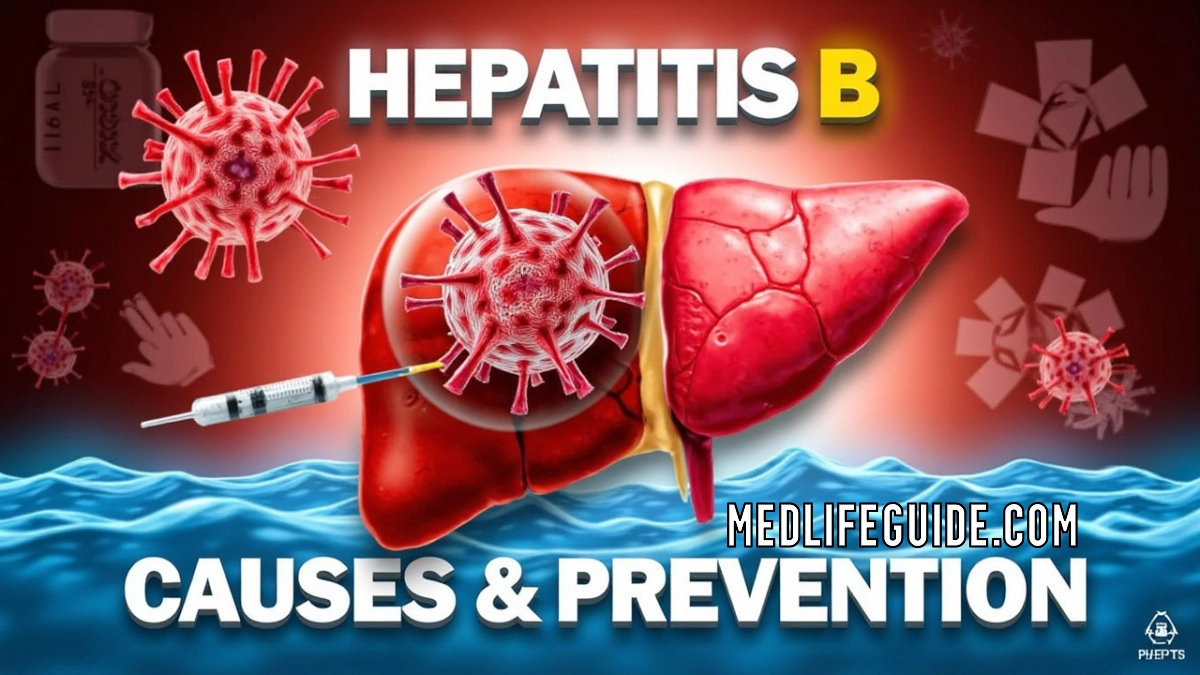Hepatitis B is a serious liver infection caused by the hepatitis B virus (HBV). While it can range from a mild illness to a chronic condition leading to liver damage, the good news is that it’s preventable. Understanding its causes and taking proactive steps can significantly reduce your risk.
- How hepatitis B spreads – common and lesser-known transmission routes
- Key risk factors – who’s most vulnerable?
- Effective prevention strategies – vaccines, lifestyle changes, and more
- Debunking myths – separating fact from fiction
What Causes Hepatitis B?
Hepatitis B is caused by the hepatitis B virus (HBV), which attacks the liver. The virus spreads through contact with infected blood or bodily fluids. Here’s how transmission commonly occurs:
1. Mother-to-Child Transmission (Perinatal Infection)
- The most common route in high-prevalence regions.
- An infected mother can pass HBV to her baby during childbirth.
- Prevention: Newborns should receive the hepatitis B vaccine within 24 hours of birth.
2. Contact with Infected Blood
- Sharing needles or syringes (common among IV drug users).
- Accidental needle sticks (healthcare workers are at risk).
- Using contaminated medical/dental equipment.
3. Sharing Personal Items
- Razors, toothbrushes, or nail clippers with traces of infected blood.
4. Poorly Sterilized Tattoo or Piercing Equipment
- Unregulated tattoo parlors may reuse needles.
5. Rare but Possible: Blood Transfusions (In Countries Without Proper Screening)
- Modern blood banks screen for HBV, but this was a concern in the past.
Did You Know?
Hepatitis B is 50–100 times more infectious than HIV, yet many people don’t realize they’re infected until liver damage occurs.
Who Is at Higher Risk?
- Healthcare workers (exposure to blood)
- Infants born to infected mothers
- People with multiple sexual partners
- IV drug users
- Individuals living in or traveling to high-prevalence regions (e.g., sub-Saharan Africa, East Asia)
How to Prevent Hepatitis B
1. Get Vaccinated – The Best Defense
- The hepatitis B vaccine is safe and 95% effective.
- Given in 3 doses over six months.
- Recommended for all newborns, healthcare workers, and at-risk adults.
2. Avoid Sharing Needles or Personal Items
- Never share razors, toothbrushes, or needles.
- Ensure sterile equipment for tattoos/piercings.
3. Screen During Pregnancy
- Pregnant women should be tested for HBV.
- If positive, the baby should receive HBV immunoglobulin and vaccine at birth.
4. Be Cautious with Blood Exposure
- Healthcare workers should follow universal precautions (gloves, proper disposal of needles).
5. Know Your Status
- Many people with HBV don’t show symptoms initially.
- Early detection through blood tests can prevent liver damage.
Myths vs. Facts About Hepatitis B
- Myth: “You can get hepatitis B from casual contact like hugging or sharing food.”
- Fact: HBV spreads only through blood and bodily fluids—not through casual contact.
- Myth: “Only drug users and promiscuous people get hepatitis B.”
- Fact: Anyone can contract HBV—even through accidental exposure (e.g., medical procedures).
- Myth: “If you have hepatitis B, you’ll definitely develop liver cancer.”
- Fact: With proper monitoring and treatment, many live healthy lives without complications.
Key Takeaways
- Hepatitis B is preventable with vaccination and safe practices.
- Early detection is crucial—get tested if at risk.
- Chronic HBV can be managed with antiviral medications.
For more detail about the symptoms of Hepatitis B click here

